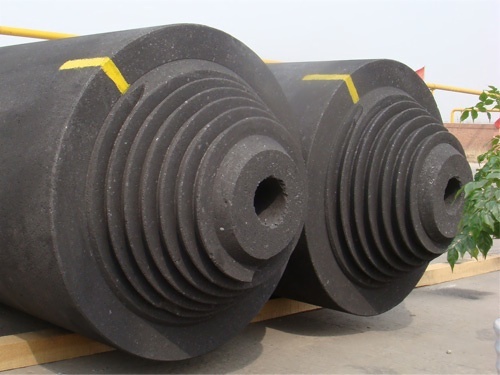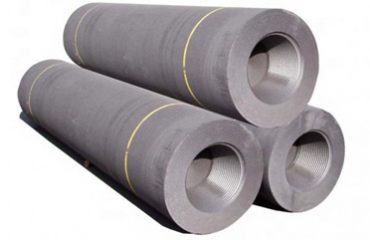
Roasting is one of the heat treatment processes in the industrial production of graphite sheets and graphite products. The roasting of raw products after moulding is indirectly heated with coke powder (or quartz sand) as protective medium in the roaster at a constant heating rate under the condition of isolating air. The heating time varies according to the product variety, specifications and the heating curve adopted. It usually takes 12 to 23 days. The highest temperature of products reached during roasting is about 1000–1250T.
The roasting temperature of graphite anode plate and graphite carbon plate which need further graphitization can be slightly lower, but the roasting temperature should not be lower than 1200T for products such as carbon block and pre-baked anode.
Graphite sheet
The pressed graphite sheet and graphite carbon sheet are composed of coke particles and binder. Because of the existence of a large number of binders (usually 20–30% in medium asphalt), raw products do not have a series of physical and chemical properties necessary for use. For example, although raw products have a certain strength at room temperature, they are brittle, impact-resistant and wear-resistant. When heated to a certain temperature (above the softening point of asphalt), they are in a softening state and are very easy to bend and deform. In addition, raw products have great resistance and are almost non-conductive.
In order to make the product possess a series of physical and chemical properties needed in use, it is necessary to roast the raw products according to certain technological conditions, coke the binder, form coke grids between aggregate particles, and firmly connect all aggregate particles of different sizes, so as to make the graphite rod and graphite carbon plates have certain mechanical properties. Finished or semi-finished products with good strength, heat resistance, corrosion resistance, conductivity and thermal conductivity (semi-finished products refer to products requiring further graphitization)

